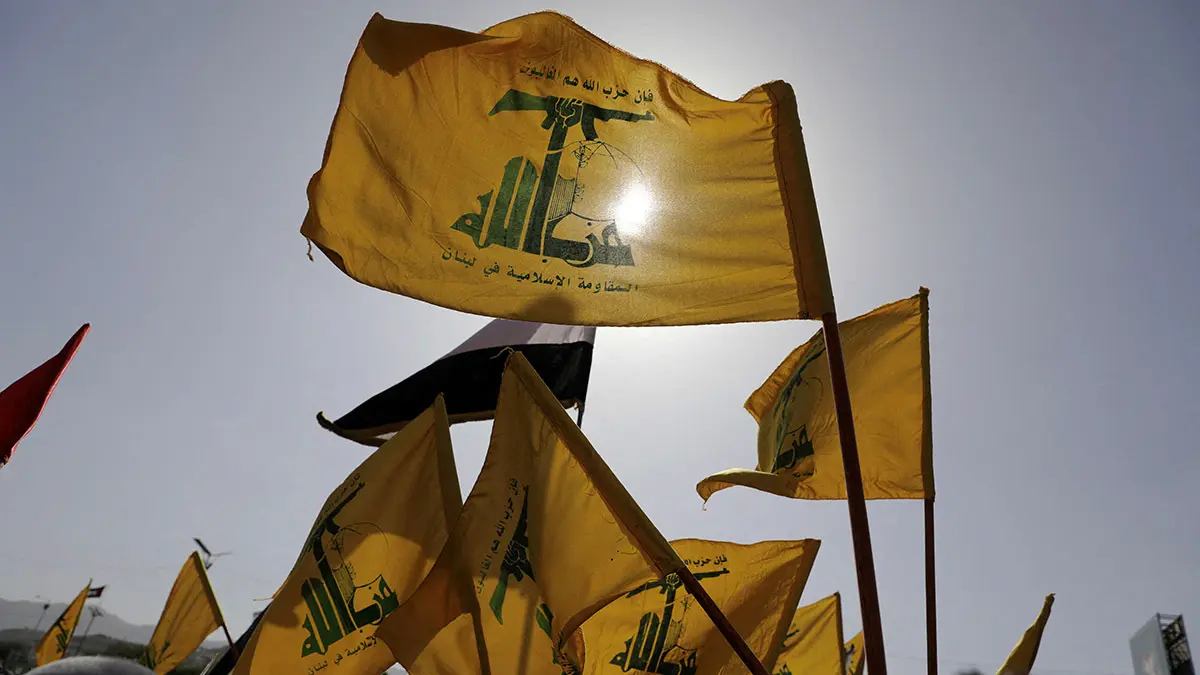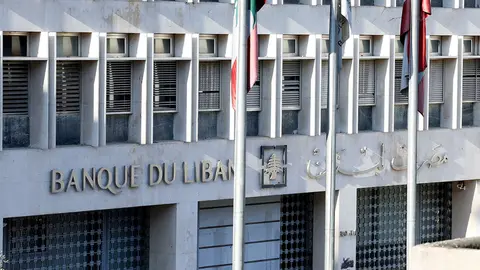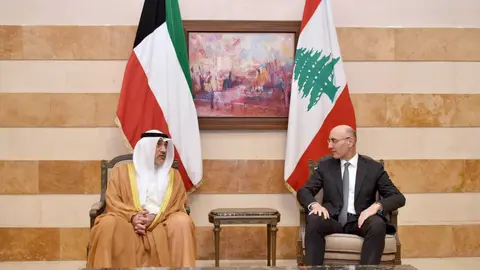Hezbollah intends to keep its arsenal

Hezbollah, the Iranian-backed Lebanese Shiite militia, refuses to give up its weapons arsenal, as demanded by the United States, which is pressuring the Lebanese government to force the Shiite militia to do so.
The Lebanese cabinet has already ordered the national armed forces to take full control of existing weapons, sparking heated controversy.
Hezbollah told the Lebanese government that it was committing a ‘grave sin’ by ordering the army to establish a state monopoly on weapons, which is exacerbating national divisions over calls for the Shiite Muslim group to disarm.
Despite unprecedented pressure from Washington and its internal rivals, the Iranian-backed group has refused to completely renounce its arsenal, which it retained after the end of the Lebanese civil war in 1990, even as other militias disarmed.
Now, the United States has demanded that the Lebanese cabinet explicitly commit to stripping Hezbollah of its weapons, a move that risks reigniting tensions in Lebanon, a multi-sectarian nation where Hezbollah still enjoys significant support among Shiites, even though its militant wing has been greatly weakened by its latest war with Israel.
The cabinet on Tuesday tasked the Lebanese army with drawing up a plan to confine weapons across the country to six official security agencies by the end of the year.
Hezbollah rejected the decision in a statement, saying it was the result of US ‘dictates’ and that it would ‘treat it as if it did not exist.’
‘The government of Prime Minister Nawaf Salam has committed a grave sin by taking the decision to strip Lebanon of its weapons to resist the Israeli enemy... This decision fully serves Israel's interests,’ the group said.
The statement said that Shiite ministers walked out of the cabinet session before the decision was taken as ‘an expression of the resistance's (Hezbollah's) rejection of this decision.’
The group said it remained open to discussing a broader national security strategy and called on its supporters to remain patient.
The session held at the presidential palace in Lebanon was the first time the cabinet had addressed the issue of Hezbollah's weapons, something unthinkable when the group was at the height of its power before last year's devastating war with Israel.
The US-brokered ceasefire between Lebanon and Israel in November ended that conflict, urged Lebanon to confiscate all ‘unauthorised’ weapons throughout the country and stated that Israel would halt offensive operations against Lebanese targets.
However, Israel has kept its troops at five points in the southern Lebanese border region and has continued air strikes against what it considers Hezbollah fighters and weapons depots.
In June, the United States presented the Lebanese authorities with a roadmap proposing the total disarmament of Hezbollah in exchange for the withdrawal of Israeli troops and the cessation of attacks.
Hezbollah and its main ally, the Amal Movement, led by Parliament Speaker Nabih Berri, have demanded that the order be reversed, saying Israel must stop its attacks before any discussion on weapons can take place.
Shiite representation in both parliament and government is dominated by Hezbollah and its political ally Amal.
On Wednesday, Amal said the Lebanese government should focus on consolidating the November ceasefire and that the next cabinet meeting, scheduled for Thursday, would be an opportunity to correct the course.
Imad Salamey, head of the Department of Political and International Studies at the Lebanese American University, said the country's Shiite community, hardest hit by last year's war, now feared that handing over Hezbollah's weapons would leave it vulnerable to new Israeli attacks.
‘We are probably heading towards a polarised political landscape,’ he told Reuters.
Hezbollah emerged politically and militarily weakened from its latest conflict with Israel, with its arsenal destroyed and its leadership decimated.
Israel has continued its attacks on Hezbollah and other targets despite the November truce and has threatened to continue doing so until the group is disarmed.
For Hezbollah, retaining its weapons means maintaining its political influence and reassuring its Shiite voters.
‘Hezbollah was two things: it was Hassan Nasrallah and the weapons,’ Lebanese political commentator Mustafa Fahs told The New York Times.
Any attempt to force Hezbollah to disarm is threatened by the spectre of previous episodes of civil unrest, such as the 2008 clashes triggered by the government's attempt to shut down the group's military telecommunications network, an important facility for the organisation but less crucial than its weapons.
Some Lebanese parties may continue to seek a solution that avoids a confrontation between Hezbollah and the state, while also avoiding more intense Israeli attacks.
Complicating the situation further, in addition to Israel's military attacks, is Iran's continued interference in Lebanese politics.
Iranian Foreign Minister Abbas Araghchi said Iran supports the decisions of its ally Hezbollah after the group rejected a Lebanese government plan to disarm it.
'Any decision on this matter will ultimately rest with Hezbollah itself. We support it from a distance, but we do not interfere in its decisions,' Araghchi said in a television interview, adding that the group has 'rebuilt itself' after the setbacks it suffered during last year's war with Israel.
Araghchi added: 'Hezbollah's structured and disciplined forces have the strength and preparedness to defend themselves.'
The Iranian foreign minister criticised the Lebanese government's decision to task the army with drawing up a disarmament plan by the end of the year, calling it a 'serious mistake'.
'Future decisions belong to Hezbollah itself, and Iran will continue to support the group without interfering in its internal resolutions,' he added.










